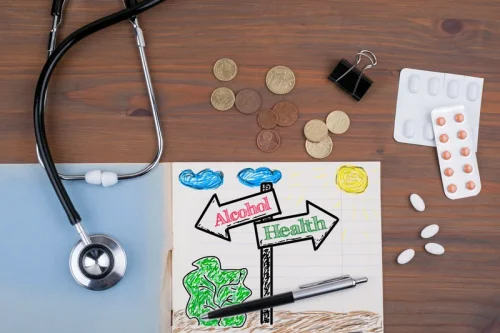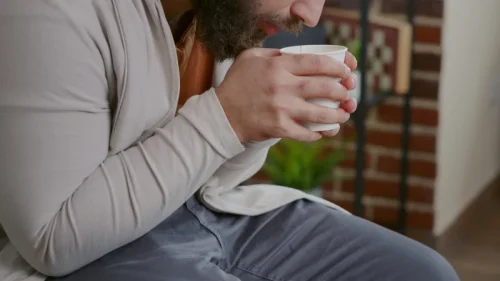
However, the term alcoholic nose is not a medically-recognized condition. If you’re concerned about the effects of alcohol on your nose, you may want to consider cutting back on your consumption. Excessive alcohol consumption can lead to many other health problems, both short and long-term. These include liver damage, heart disease, cancer, mental health issues, and organ damage. Alcohol is a vasodilator, which means it increases blood flow to the skin’s surface, causing redness and inflammation. While Rhinophyma is not directly caused by alcohol consumption, alcohol can trigger or worsen the symptoms of rosacea like redness on the skin.
- The condition will only come back if the rosacea is not controlled.
- For those who have the skin condition, it can be difficult to enter into society when flare-ups occur because of the existing stigma surrounding alcoholic nose.
- Using alcohol heavily, especially over a long period of time, can have a devastating effect on your health.
- Alcohol is not the cause of alcoholic nose, but it does have an effect on those with rhinophyma.
- Those with a family history of rosacea also increases the likelihood of developing rhinophyma (alcoholic nose).
- They define moderate amounts as one drink per day for women and two for men.
Cancer risk

In fact, you may not even have symptoms until the disease is pretty advanced. You may notice small, red, spider-like blood vessels on your skin. You may vomit blood or material that looks like coffee grounds. Alcoholic liver disease also can affect your brain and nervous system. Symptoms include agitation, changing mood, confusion, and pain, numbness, or a tingling sensation in your arms or legs.
- Over time, this can lead to scarring and cirrhosis of the liver, which is the final phase of alcoholic liver disease.
- Though the causes of rhinophyma are unknown, it’s thought to be a severe form of a skin disease called rosacea.
- In some cases, surgical treatment can improve appearance and help ease anxiety.
- The main treatment option for rhinophyma is surgery; however, there are some medications that may provide a small degree of help.
- If a person is sensitive to alcohol or has a lot to drink, their body may not be able to manage all of those toxins, and acetaldehyde can begin to build up.
- Alcohol intolerance is caused by a genetic condition in which the body can’t break down alcohol efficiently.
The Impact of Social Influence: How the People You Hang Around Affect Addiction Issues
It can affect anyone but is most common among middle-aged women with lighter complexions. If you’re concerned about the effects of alcohol on your nose, it’s essential to talk to your doctor. They can help you understand the risks and recommend substance abuse treatment. Rhinophyma exacerbated by heavy drinking can cause the cartilage cells to swell, resulting in a bulbous or “flared” appearance. So while drinking alcohol may not make your nose physically bigger, it can play a role in altering its appearance. Basal cell carcinoma is a slow-growing type of skin cancer that is not typically fatal.
Treatment For Alcohol Use Disorder

So, your system prioritizes getting rid of alcohol before it can turn its attention to its other work. If alcohol continues to accumulate in your system, it can destroy cells and, eventually, damage your organs. These symptoms can be treated with antibiotics such as tetracycline, metronidazole, and erythromycin. Health information is provided for educational purposes and should not be used as a source of personal medical advice. Thanks to generous benefactors, your gift today can have 5X the impact to advance AI innovation at Mayo Clinic.
- However, alcohol addiction can cause a person to neglect their health, which can mean side effects on any pre-existing health conditions, including rosacea.
- Rosacea can be treated in its early stages with antibiotics, including topical creams.
While it’s true that chronic alcohol abuse can lead to many health problems, there is no definitive evidence that drinking alcohol causes the so-called alcoholic nose. It is important to emphasize that at the end of the day, alcoholic nose doesn’t really have much to do with alcohol at all. Rather, it’s a severe form of the chronic skin condition rosacea. Although alcohol use does not cause rhinophyma or rosacea, it can aggravate the condition.
Those are just a few unexpected observations from this large and most current representative study of taste and smell issues in Americans. It’s based on data from the National Health and Nutrition Examination Survey, a periodic assessment of the nation’s health conducted by the National Institutes of Health (NIH). However, if you have a serious reaction or severe pain, alcoholic nose see your doctor. Also, if your symptoms seem to be linked to an allergy or a medication you’re taking, see your doctor. Combining alcohol with certain medications also can cause reactions. We’re not certain about why it mostly affects men, but think likely causes include that they are more likely to work outside, and less likely to seek treatment for rosacea.
Does Alcohol Worsen The Effects Of Rhinophyma?
So what is rhinophyma, and how does it connect to alcohol abuse? Please read on to learn all you need about alcoholic nose and the connection between alcohol addiction and skin conditions. An alcoholic nose, often called a whiskey nose, drinker’s nose, gin nose, or gin blossom nose, is a common way to refer to a large purple-tinted nose. However, there is a lot of urban legend surrounding alcoholics’ noses. The term “alcoholic nose” has an interesting history and an even more interesting scientific explanation.
While drinking may not cause “alcoholic nose,” getting help to quit drinking can make the condition much easier to manage. Another common reason why this skin condition has been called alcoholic nose is that if a person has this condition, drinking alcohol can cause flare-ups. While misusing alcohol over a prolonged period of time may not be likely to cause an alcoholic nose, there are many other ways alcohol can affect your body. Alcohol can cause liver disease and kidney problems as well as increase your risk of cancer, heart attack and stroke. Using alcohol heavily, especially over a long period of time, can have a devastating effect on your health. Rosacea is a chronic skin condition that affects the blood vessels in the face, leading to a flushed appearance of the facial skin.
- The nose may also have a purple-colored appearance and could be mistaken for having warts or other skin blemishes that look like protruding lumps.
- Ways that your standard hangover cures won’t even begin to touch.
- This is a great tool for those looking to stop drinking because of alcoholic nose.
- Therefore, a common cause of rhinophyma is having long-term rosacea.
- Unfortunately, doctors are not yet clear on the direct cause of rhinophyma.
